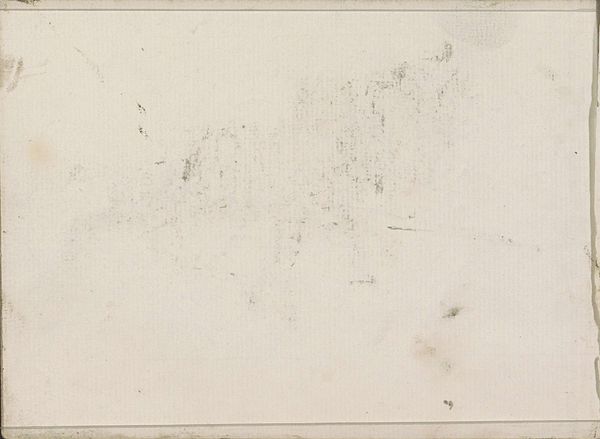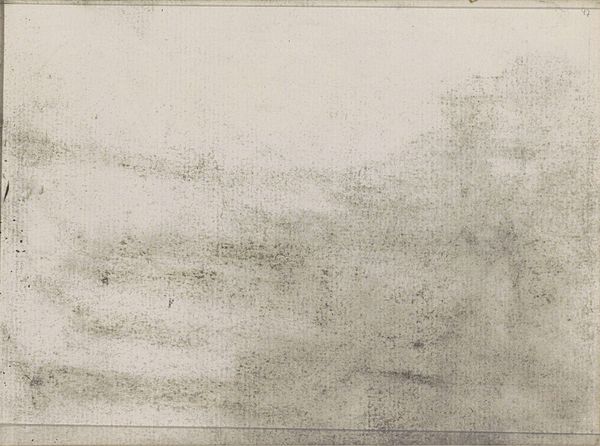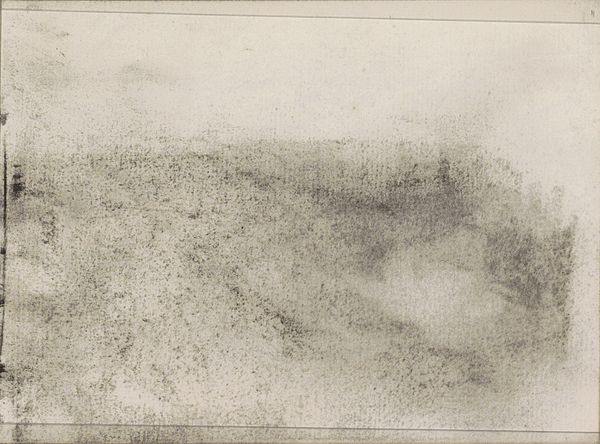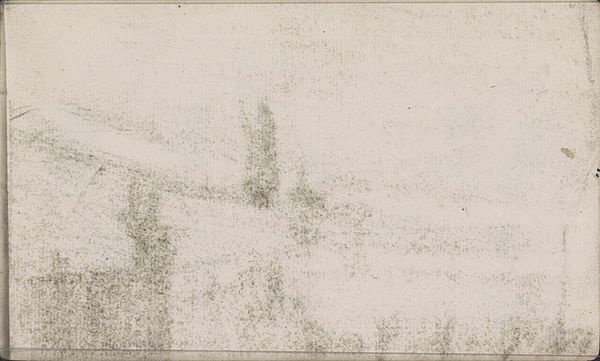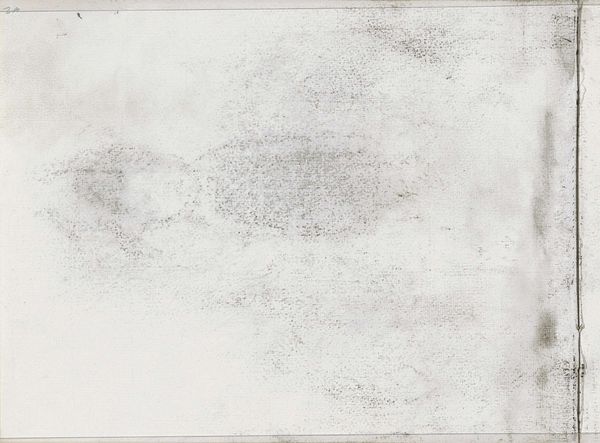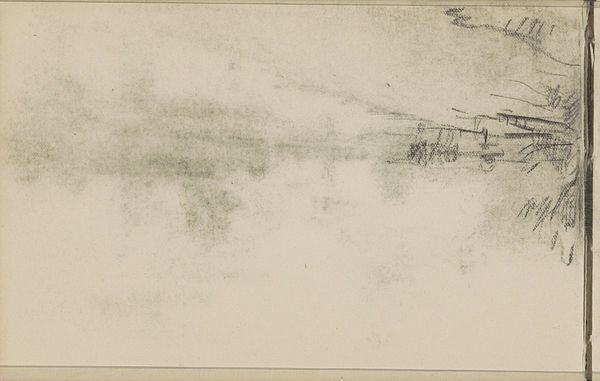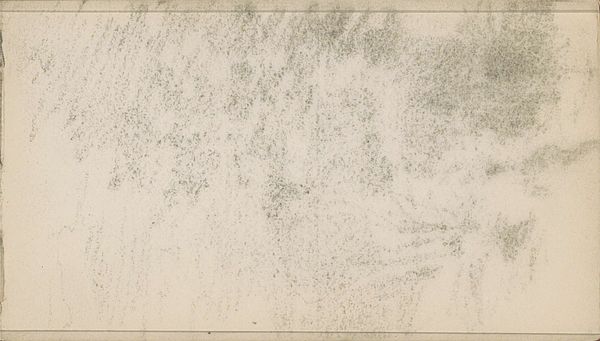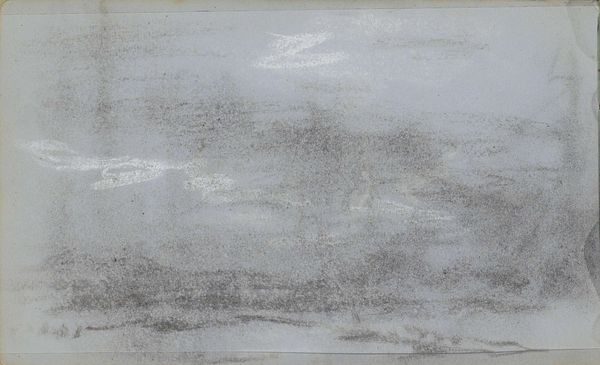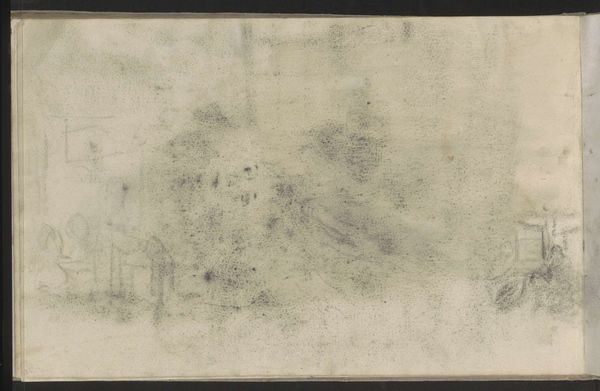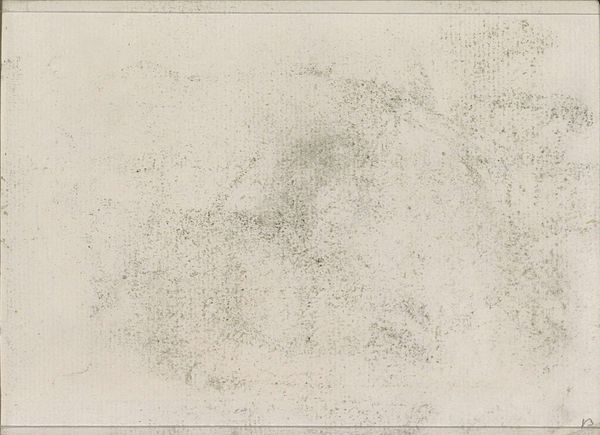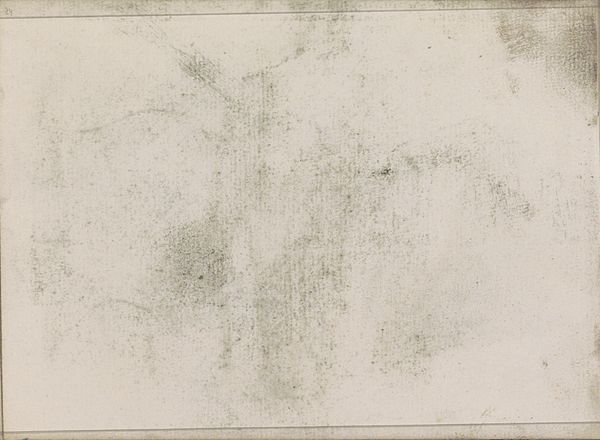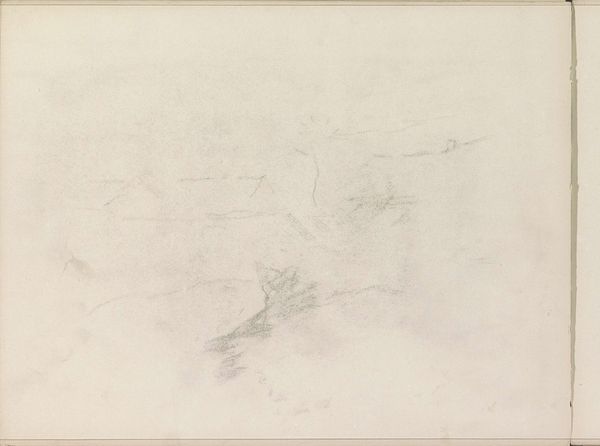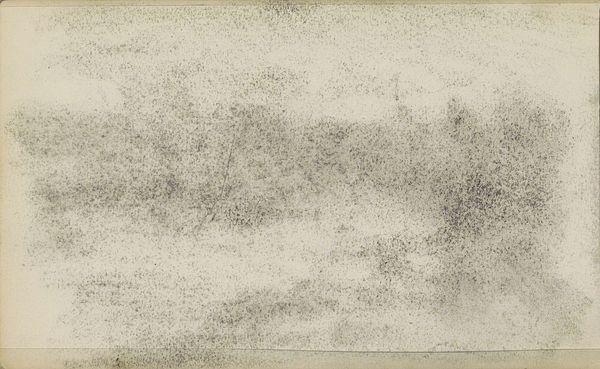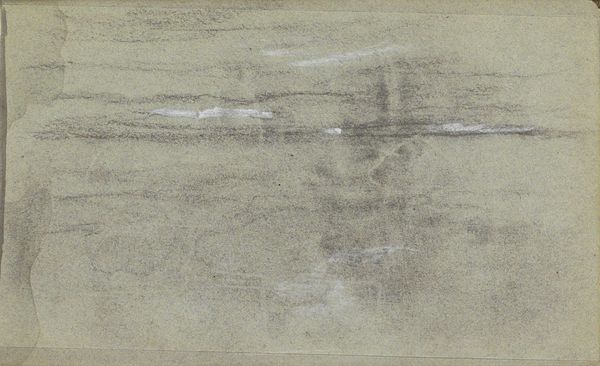
Copyright: Rijks Museum: Open Domain
Editor: We're looking at "Abklatsch van de krijttekening op pagina 40," a pencil drawing on paper by Isaac Israels, made sometime between 1886 and 1903. The image is quite faint; it's a ghost of a landscape, almost faded from existence. What’s striking is how ephemeral the whole thing feels. How do you interpret this work, thinking about its historical moment? Curator: It's interesting you say 'ephemeral.' Consider the role of drawing in late 19th-century artistic practice. With the rise of photography, sketching became less about directly capturing reality and more about artists exploring impressions and ideas, and preparing for painting. The sketch became a tool, rather than a finished piece and museums were founded specifically to exhibit this creative and intellectual production in a move that helped solidify its cultural value. How does this inform your view? Editor: I suppose that changes my perspective. I saw this faded landscape as melancholic, but thinking about its potential function as a preparatory study makes it seem almost like a record of artistic thought, not a finished artwork intended for public display. It gains new relevance. Curator: Precisely. The very existence of this 'Abklatsch,' this transfer or impression, hints at the reproduction processes that started gaining traction in art at that time. Did such availability expand the influence and popular perception of impressionist landscape? Editor: I see your point, like, the accessibility of artistic study is not very different to modern day screen grabs? Thinking of the socio-political shifts and burgeoning mass media of the era makes this sketch seem like part of a larger visual culture revolution. It's less a sentimental landscape, more an artefact of changing art consumption. Curator: Exactly! Understanding art's role within larger social and technological transformations often gives a rich meaning to works that, at first glance, might seem unassuming or incomplete. Editor: This was super enlightening! I didn’t know so much information can be embedded in the production process itself!
Comments
No comments
Be the first to comment and join the conversation on the ultimate creative platform.
